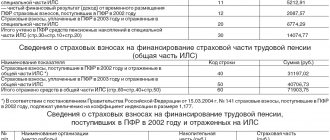Which person is considered an orphan?
Orphans are minor children whose parents or only parent have died. The state takes upon itself the task of supporting such children and provides them with social benefits and pensions.
The category of children left without parental care includes minors whose parents:
- deprived or limited in rights;
- declared absent, incompetent or dead;
- parents are serving sentences in prison or are in custody on suspicion of committing a crime;
- are not raising a child;
- refuse to take children from social institutions;
- unknown in principle.
Payments and benefits are also provided to young people aged 18 to 23 who lost their parents in childhood. In the material we will talk about the payments that are due to orphans, children without parental care and young people under 23 years old from this category.
Bankiros.ru
Service apartment
According to Art. 92 of the Housing Code of the Russian Federation (LC RF), a service apartment is one of the residential premises of a specialized housing stock allocated for certain categories of citizens, due to the nature of their labor relations , due to their lack of housing in a particular locality.
According to Art. 93 Housing Code of the Russian Federation, a service apartment is allocated in the following cases:
- the emergence of labor relations between persons: with a state or municipal authority;
- state or municipal enterprise and institution;
The list of positions in which citizens can apply for the use of a service apartment is determined by the decision of state authorities, authorities of a constituent entity of the federation and local governments (Clause 2 of Article 104 of the Housing Code of the Russian Federation). In addition to these, there are other features:
- a rental agreement concluded between the tenant and the government agency acting on behalf of the owner (Clause 1, Article 99 of the Housing Code of the Russian Federation), which establishes the amount of payment for the housing provided. It is in writing and involves some restrictions, for example, a ban on exchange and subletting of an apartment.
- members of his family the right to move into a service apartment , while they have equal rights to use the apartment and are indicated in the lease agreement (Clause 6 of Article 100 of the Housing Code of the Russian Federation).
- The rental agreement for a service apartment is concluded for the duration of the person’s labor relations with the above-mentioned bodies, enterprises or institutions.
Termination of such labor relations is grounds for termination of a previously concluded employment contract.
What laws regulate payments to orphans and children without parental care?
Payments to orphans and children without parental care are regulated by federal and regional acts. Among federal sources:
- Federal Law “On additional guarantees for social support for orphans and children left without parental care.”
- Art. 34.1 Federal Law “On Employment in the Russian Federation”
- Federal Law “On State Social Assistance”.
- Article 9 of the Federal Law “On Labor Pensions in the Russian Federation”.
- Federal Law “On state benefits for citizens with children.”
- Order of the Ministry of Health and Social Development “Procedure and conditions for the appointment and payment of state benefits to citizens with children.”
You can find regional regulations that regulate the issues of payments to orphans on the website of your regional government or in the social protection authorities.
Bankiros.ru
What pension payments are due to orphans?
An orphan has the right to a social pension for the loss of a breadwinner if one or both parents died before he or she came of age. The pension is awarded to an orphan under 18 years of age. Afterwards it will be extended until the age of 23 if the child enters full-time education at a secondary school or university.
The size of such a pension depends on the work experience of the child’s parents and the regional surcharge, which is assigned when the pension amount is below the subsistence level in the region. Typically, the size of the survivor's pension is equal to the minimum subsistence level of a pensioner in the region. At its discretion, the region may increase this pension. The current size of the social pension for a constituent entity of the Russian Federation can be found on the PFR website.
A labor pension is assigned to an orphan if his parents had work experience. It is on this basis that the size of such a pension is calculated. If the parents did not work, the orphan is paid a social pension.
You must apply for a survivor's pension at the territorial office of the Pension Fund. It is better to apply for it in the first year after the death of a parent. Then you will be paid for the entire period from the death of your relative.
Bankiros.ru
What federal and regional payments are due to orphans?
- An orphan leaving a special institution can choose to receive help in the form of a set of clothes, shoes and other things or in the form of monetary compensation. The size of the payment is determined by the region.
- One-time payment upon employment. The amount of assistance depends on the subject of the Russian Federation. In St. Petersburg, such a payment will be 96,040 rubles, and in Moscow 82,355 rubles.
- A one-time payment in connection with the enrollment of an orphan in a vocational educational institution. It also depends on the decision of the subject of the Russian Federation. In the capital, the amount of payments is 21,403 rubles.
- One-time payment to orphans and children without parental care. Entitled to children upon completion of their stay in organizations for orphans, family caregivers, guardians or adoptive parents due to reaching the age of eighteen. The amount of payments is regulated by the constituent entity of the Russian Federation. In Moscow, the payment will be 24,888 rubles.
- Payment upon graduation from a university or secondary school. Depends on the region.
- Monthly payment to orphan spouses who are full-time students. In the capital, the payment amount will be 3,286 rubles.
- Social scholarship and additional financial assistance to orphan students every six months. The amount of payments depends on the educational institution.
Bankiros.ru
What requirements must be met to receive payments?
An orphan or a child left without parental care must have permanent registration at the place of application for payments. Orphan spouses may qualify for monthly payments if their marriage is officially registered and they have permanent registration at the place of application for financial assistance. In addition, they must be full-time students.
How to apply for payments due to orphans
An application for payment must be submitted to the social security authorities. The document is filled out by boarding school employees if the orphan is there. If the child is in a foster family, he submits the application independently. You must apply for payment within six months after reaching adulthood. The package of documents depends on the region and on who exactly is submitting the application - an orphan or an employee of a special institution.
The procedure for applying for payments should be found in a special regional regulatory act.
The decision to assign payments is made within ten working days. within five days after the applicant is notified of the decision.
Benefits are paid for the entire period until the child reaches adulthood. Upon admission to an educational institution, payments are due from 18 to 23 years of age or for the entire period of education of the orphan.
Bankiros.ru
Who is entitled to housing from the state?
According to the legislation in force in 2021, municipalities provide housing for orphans and citizens deprived of parental care.
They are supposed to be given apartments from the social fund, if there is one. Important: an orphan’s living space can be replaced with a certificate for earmarked funds. They can only be spent on purchasing housing. The mechanism for providing houses to citizens of this category has undergone major changes. They touched on almost all aspects of the issue, except for the main one - the recipient of state aid.
Age restrictions
In 2021, housing will be provided to young people who meet the following criteria:
- has the status of an orphan or a child deprived of parental care;
- The citizen’s age must be between 18, but it is possible to obtain housing earlier;
- this person officially announced that he needed government support to solve the housing problem.
Each of the criteria is equally important. If you do not comply with at least one, then the state will relieve itself of responsibility for where the orphan will live. Moreover, this will turn out to be a completely legal act.
An orphan standing in line for an apartment remains there until his right to state support is fully realized. Even after he celebrates his 23rd birthday. It can be removed from the queue only after:
- provision of residential premises in ownership or under a social tenancy agreement;
- loss of the basis for providing comfortable residential premises;
- inclusion in the list in another subject of the Russian Federation in connection with relocation;
- termination of citizenship;
- death or declaration of death.
Property criteria
The next gap corrected by the legislator is related to property law.
At the date of adoption of this act (1996), this institution had not yet been developed in the Russian Federation, therefore it was not taken into account in the old version of the law. Now the fraud hole has been fixed. Before an orphan is given housing, his other property rights are carefully checked. Download for viewing and printing: Housing Code of the Russian Federation
The beneficiary must meet the following criteria:
- not be a tenant of residential premises under social tenancy agreements;
- not be the owner of the residential premises;
- recognition of the impossibility of living in occupied residential premises under a social tenancy agreement or by right of ownership. This includes the following circumstances:
- residence in such premises on a legal basis of persons deprived of parental rights in relation to such children;
- residence in such premises for persons suffering from a severe form of a chronic disease, in which living together with them is impossible.
- the residential premises are declared unfit for habitation;
- the area of living space per person living in it is less than the accounting norm. The accounting rate is calculated taking into account the beneficiary's move into the premises;
- other circumstances that may be established by the law of the constituent entity of the Russian Federation.
Important: each of the listed circumstances must be documented. Simply announcing it is not enough.
The legislative framework
The right to own housing for orphans is guaranteed by several regulations:
- Law No. 159-FZ of December 21, 1996;
- Article No. 54 of the Family Code;
- Article No. 123 of the Family Code;
- Article No. 292 of the Civil Code.
In 2013, the basic law regulating social support for orphans (No. 159-FZ) was slightly amended. If previously children received housing on a social tenancy basis immediately after leaving the orphanage, serving in the army, etc., with the right to privatize it, now this opportunity is not provided.
Changes in the law on the provision of housing imply the transfer of an apartment on a special lease basis. It limits the tenant's rights to the property. An orphan cannot privatize an apartment, sell, exchange or donate. The duration of the special hire is 5 years. After its completion, the housing goes into social rent and can already be privatized.
The previous option often led to orphans being left homeless due to ignorance of the law and fraudulent activities. Now these risks are practically eliminated.









